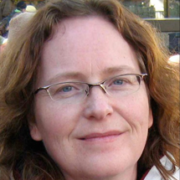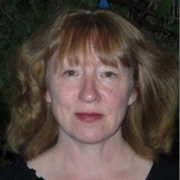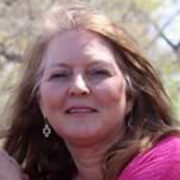Ethics Extravaganza 2019

Ethics Extravaganza 2019
June - July 2019
Our 5th online ethics conference
Photo credit: Paul Carter, We Do It In Public. Used with permission.
Ethics Extravaganza 2019, was made up of E CERP presentations from our conferences in the previous years. iLactation offers 5.00 E CERPs for IBCLCs around the world to help satisfy the requirement for a minimum of 5 E CERPs on ethics and related topics for IBCLC recertification.

Formula marketing in the information age: a moving target
Jennie Bever Babendure, PhD, IBCLC - Read moreFormula marketing in the information age: a moving target
Jennie Bever Babendure, PhD, IBCLC
Dr Jennie Bever Babendure is a Biologist and International Board Certified Lactation Consultant. She is the owner of The Arizona Breastfeeding Center, a freestanding breastfeeding practice in Tempe, Arizona (www.azbreastfeeds.com). She also has an academic appointment in the College of Nursing and Health Innovation at Arizona State University, where she studies the interplay between social and biological issues in human lactation. Dr Bever Babendure is also the executive director of 4th Trimester Arizona, a 501c3 nonprofit organization that envisions a world where all families are embraced by their communities in their transition to parenthood (www.4thtrimesteraz.org).
Dr Bever Babendure received her Bachelor’s degree in Biochemistry from Arizona State University, and PhD in Biology from the University of California, San Diego. She completed UC San Diego’s Lactation Consultant Training Program and earned her IBCLC certification in 2009. She has served as an administrator of the Friends of the WHO Code Facebook group since 2011, when she co-led a social media campaign to encourage the Pan American Health Organization to cease their acceptance of funding from Nestle. Dr Bever Babendure and her husband have four beautiful children who do their best to teach her more about motherhood, lactation, and humility every day.
Formula marketing in the information age: a moving target
As more US hospitals commit to cease the practice of doling out “gift bags” containing infant formula and marketing materials to every new mother and baby, infant formula companies have moved to market their products in increasingly sophisticated ways. In particular, they are targeting mothers prenatally, when research shows they are most likely to make decisions about infant feeding. In order to get a more complete picture of the infant formula marketing efforts aimed at new mothers, we collected and categorized all print and email infant formula marketing received by one US mother during her pregnancy and first few months postpartum. We found that heavy “gift bags” containing multiple brands of formula and coupons were being given out in obstetrics offices, and large sample cans of formula were mysteriously showing up on mothers’ doorsteps, often just before they gave birth. In addition to the hundreds of print ads and coupons sent by mail and seen in baby magazines, we also found a large amount of this marketing taking place online, where content is “pushed” toward consumers via email, search engines and even social media. Through this study and our work with the “Friends of the WHO Code” on Facebook, we have begun to develop a clearer picture of the cultural environment in which US mothers are entrenched, where breastfeeding support is often expensive and difficult to find, while breastmilk substitutes arrive at your door, inbox, and Facebook page unprompted, complete with coupons and the implied endorsement of trusted healthcare providers.

The commercialization of human milk
Jodine Chase - Read moreThe commercialization of human milk
Jodine Chase
Jodine Chase is a public relations and communications consultant specializing in issues and crisis management news analysis. Jodine is a long-time breastfeeding advocate who, as a volunteer, works for many breastfeeding related causes including advocating for the re-establishment of milk banks and amending policies and legislation to protect breastfeeding rights. Jodine serves on the board of her local breastfeeding advocacy group, for the Best for Babes Foundation, and volunteers with ILCA, INFACT Canada, and Friends of the WHO Code. She’s involved in many breastfeeding related events including the Miracle Milk Stroll and the Breastfeeding Challenge.
The commercialization of human milk
Non-profit human milk banks in North America dispensed over 4 million ounces of human milk in 2015 for infants in need. That sounds like a lot of milk, and it is an increase of 10 fold since the turn of the century. But in the same year, two competing US companies say they processed a similar amount of milk for commercial human milk products. One says they bought 1 million ounces at $1/oz that year. And a third company that offers a web-based brokerage for private buyers and sellers claims to have 10,000 ads offering 45 million ounces of milk at any given time. A Utah-based company is paying women in Cambodia for their milk and reselling it in the US. Infant formula companies are looking to extract human milk components to enhance their products, and the for-profit trend is expanding beyond the US’s borders into Canada, Australia, and beyond. Learn more about this human milk marketplace – what are the products being sold, and how to do they compare to traditional human donor milk? What are the options for families that wish to donate or sell milk, and for those in need?

Climate change and the sustainability of breastfeeding
Carol Bartle, RN, RM, IBCLC, PGDip (Child Advocacy), MHSc - Read moreClimate change and the sustainability of breastfeeding
Carol Bartle, RN, RM, IBCLC, PGDip (Child Advocacy), MHSc
Carol Bartle has a nursing, midwifery and lactation consultant background and works as a maternal, infant and child health promoter with the Canterbury Breastfeeding Advocacy and Information Service at Te Puawaitanga ki Otautahi Trust. She also works as a policy analyst with the New Zealand College of Midwives. Carol studied at the University of Otago and has a post- graduate diploma in Child Advocacy and a Masters in Health Sciences. Major interests include women’s health, breastfeeding and infant feeding, ethics, human rights, infant feeding in emergencies, climate change, and health policy/politics.
Climate change and the sustainability of breastfeeding
Naomi Klein, in her book, This Changes Everything: Capitalism vs. the Climate discusses how corporate interests have exploited disaster situations and turned climate change catastrophes into business opportunities (Klein, 2014). Climate change has been described as a threat to a bottom line of sustainable development – human health (Neira, 2014). As the quest to sell more breast-milk substitutes intensifies and marketing becomes ever more aggressive, the continued decline of breastfeeding is of major concern. Global warming contributes to rising rates of climate disaster (McGuire, 2012), threatens population health, and contributes to poverty, income inequality, and pollution. However, the negative impact on the planet of industrial dairying and the increasing amount of milk powder is not always included in analyses of climate change risk. It has been suggested that the dairy industry is not only unsustainable but that the externalities resulting from the industrial dairy model results in more cost than profit (Foote & Joy, 2014). How the world’s babies are fed is of great significance to our collective future.

Breastfeeding, contraception, and ethics, oh my! Advocacy and informed decision-making in the post-partum period
Alison Stuebe, MD, MSc, FACOG - Read moreBreastfeeding, contraception, and ethics, oh my! Advocacy and informed decision-making in the post-partum period
Alison Stuebe, MD, MSc, FACOG
Dr Alison Stuebe completed her Obstetrics and Gynecology residency at Brigham and Women’s Hospital and Massachusetts General Hospital in Boston. She completed fellowship training in Maternal Fetal Medicine at Brigham and Women’s, and she earned a Masters in Epidemiology from the Harvard School of Public Health. She has published more than 120 peer-reviewed articles. She is currently an Associate Professor and Board-Certified Maternal-Fetal Medicine subspecialist at the University of North Carolina School of Medicine and Distinguished Scholar of Infant and Young Child Feeding at the Gillings School of Global Public Health. In the clinical arena, she is Medical Director of Lactation Services at UNC Health Care, and she works with an interdisciplinary team of faculty and staff to enable women to achieve their infant feeding goals. Her current research focuses on developing models for integrated care of families during the 4th Trimester.
She is a member of the Steering Committee for Moms Rising North Carolina, and she is actively engaged in professional organizations. At the Society for Maternal-Fetal Medicine, she is a member of the board of directors and of the SMFM Health Policy and Advocacy Committee. At the American College of Obstetricians and Gynecologists, she is a member of both the Breastfeeding Expert Work Group and the Maternal Mental Health Expert Work Group, and she chaired the Task Force on Reinventing Postpartum Care. She is also chair of the Communications Committee and president-elect of the Academy of Breastfeeding Medicine.
Breastfeeding, contraception, and ethics, oh my! Advocacy and informed decision-making in the post-partum period
When a woman wants to breastfeed and wants to space her pregnancies, how can we help her make an informed decision about the risks and benefits of hormonal contraception?

Avoiding conflict of interest in the area of infant and young child feeding
David Clark, JD - Read moreAvoiding conflict of interest in the area of infant and young child feeding
David Clark, JD
David Clark is an international lawyer working with the Nutrition Section, UNICEF, New York. Prior to that David worked for the United Nations Interregional Crime and Justice Research Institute in Rome, Italy. A native of Scotland, he began his career as an attorney with the Scottish Development Agency. Since 1995, David has assisted more than 60 countries in drafting legislation to implement the International Code of Marketing of Breastmilk Substitutes, and has been instrumental in bringing a human-rights based approach to the protection, promotion and support of breastfeeding. He has contributed to the development of international policy guidelines in the area of HIV and infant feeding and infant feeding in emergencies, and has provided guidance on issues around international trade agreements and intellectual property rights.
David has written and contributed to many articles and publications on health and nutrition policy, developed courses and training materials on the implementation of the International Code and maternity protection and has facilitated numerous workshops on the issue.
Avoiding conflict of interest in the area of infant and young child feeding
This talk will explain briefly the concept of conflict of interest, and how health professionals have been used in the past to promote the interests of commercial companies over those of their clients. It will explain how the World Health Assembly has gradually clarified the nature of conflict of interest in the context of IYCF and has recently provided helpful guidance that can assist health workers in avoiding conflict of interest.


